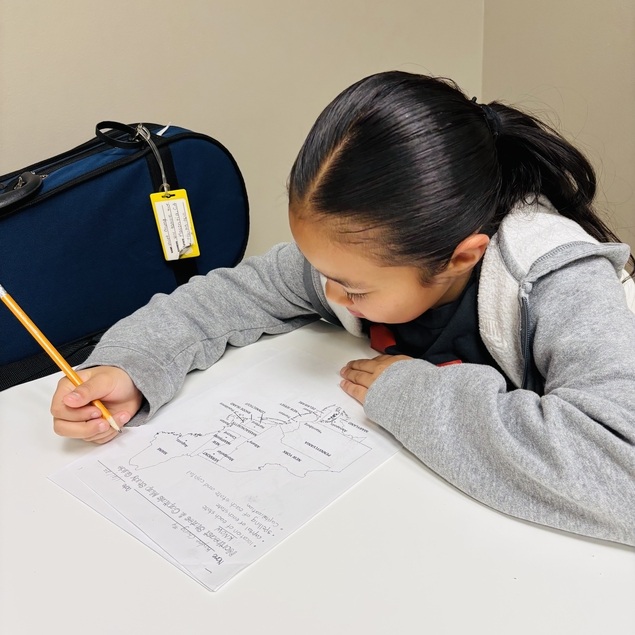
Comprehensive Writing Tips for Kids: A Detailed Guide to Enhance Young Writers' Skills and Creativity
Unlock the potential of young writers with this comprehensive guide that delves into essential writing tips tailored for kids. From fostering creativity to mastering the fundamentals of storytelling, this article offers practical advice and insights designed to enhance writing skills and inspire confidence. Whether for budding authors or parents seeking to nurture their children's literary talents, this resource provides a well-rounded perspective on cultivating a love for writing.
Understanding the Importance of Writing for Kids
The Role of Writing in Child Development
Writing is an essential skill that plays a significant role in the overall development of children. It serves as a powerful tool for self-expression, allowing young minds to articulate their thoughts and feelings. Through writing, children can explore their identities and share their unique perspectives with the world.
Writing as a tool for self-expression: Children often find it easier to express themselves through writing than through verbal communication. This form of expression can help them process their emotions and experiences, leading to improved mental health and emotional intelligence.
Enhancing cognitive skills through writing: Writing engages various cognitive processes, including critical thinking, problem-solving, and creativity. As children learn to organize their thoughts on a blank piece of paper, they develop essential skills that will benefit them in all areas of life.
Building communication abilities and confidence: Writing helps children articulate their ideas clearly and effectively. As they practice writing, they gain confidence in their communication skills, which can translate into better verbal interactions and social skills.
Fostering Creativity in Young Writers
Techniques to Spark Imagination
Creativity is the cornerstone of effective writing. Encouraging young writers to think outside the box can lead to innovative storytelling and unique perspectives.
Encouraging free writing and journaling: Allowing children to write freely without the pressure of structure can unleash their creativity. Journaling can be a safe space for them to explore their thoughts and ideas without fear of judgment.
Utilizing prompts and storytelling games: Writing prompts can serve as a springboard for creativity. Engaging in storytelling games can also help children develop their narrative skills while having fun.
Exploring different genres and styles: Introducing children to various genres, such as poetry, fantasy, and adventure, can inspire them to experiment with their writing. This exploration can lead to the discovery of their preferred writing style.
Mastering the Fundamentals of Storytelling
Key Elements of a Good Story
Understanding the basic components of storytelling is crucial for young writers. These elements form the foundation of compelling narratives.
Understanding character development: Well-developed characters are essential for engaging stories. Children should learn to create relatable characters with distinct personalities, motivations, and growth arcs.
Crafting engaging plots and settings: A captivating plot keeps readers interested. Teaching children how to build suspense and create vivid settings can enhance their storytelling abilities.
The significance of conflict and resolution: Conflict drives a story forward and keeps readers engaged. Young writers should learn how to introduce conflicts and resolve them effectively, providing satisfying conclusions to their narratives.
Practical Writing Tips for Kids
Strategies to Improve Writing Skills
Improving writing skills requires practice and dedication. Here are some practical tips to help young writers enhance their abilities.
Establishing a regular writing routine: Consistency is key to developing writing skills. Encouraging children to set aside time each day for writing can help them build a habit and improve their craft over time.
The importance of reading to enhance writing: Reading award-winning books exposes children to different writing styles and techniques. It can inspire them and provide valuable insights into effective storytelling.
Utilizing feedback and revision processes: Constructive feedback is crucial for growth. Teaching children to embrace feedback and revise their work can help them identify areas for improvement and develop a critical eye for their writing.
Encouraging a Lifelong Love for Writing
Creating a Supportive Writing Environment
A nurturing environment can significantly impact a child's writing journey. Here are some ways to create a supportive atmosphere for young writers.
Providing resources and tools for young writers: Access to writing materials, such as notebooks, pens, and books, can encourage children to write more. Consider exploring affiliate links on Amazon for affordable writing supplies.
Celebrating achievements and milestones: Recognizing and celebrating a child's writing accomplishments, no matter how small, can boost their confidence and motivation. This recognition can be as simple as sharing their work with family or friends.
Connecting with writing communities and workshops: Engaging with other young writers can provide inspiration and support. Look for local writing workshops or online communities where children can share their work and learn from one another.
In conclusion, fostering a love for writing in children is a rewarding endeavor. By implementing these writing tips and creating a supportive environment, parents and educators can help young writers unlock their potential and develop their skills.
After School Writing Classes for Elementary to High School Students in Brea, Fullerton, Placentia, and Yorba-Linda, California
At Optimus Learning School, our writing classes are carefully designed to help students build strong foundational skills in grammar, sentence structure, paragraph development, and essay writing. Whether your child is in elementary school learning to express their ideas clearly or in high school preparing for academic writing and standardized tests, our instructors provide step-by-step guidance tailored to each grade level. Students work on creative writing, narrative essays, persuasive pieces, and research papers to strengthen their writing voice and critical thinking. Our after school writing programs also include feedback-focused editing sessions and vocabulary enrichment to support long-term language development and academic success.
Academic and Enrichment Programs at Optimus Learning School: After School, Summer Camp, and More
In addition to writing, Optimus Learning School offers a wide range of educational programs for students from kindergarten through high school. We provide after school classes and activities in subjects like reading, math, science, and coding, as well as enrichment options such as art, piano, book club, and foreign languages including Korean and Chinese. We also offer school pick-up for after school programs, monthly student progress conferences, and flexible schedules to accommodate busy families. During school holidays, our seasonal programs and summer camps are packed with engaging academic and creative courses that help students stay sharp and inspired year-round. At Optimus, we’re committed to helping every child reach their full potential in a structured, supportive, and fun learning environment.
Tagged:
Optimus Learning School is a tutoring center in Brea serving Fullerton, Placentia, and Yorba Linda. Since 2008, we have been helping students from kindergarten through high school achieve their academic goals through our various programs such as our home school, after school program, homework help, and private tutoring. We also offer seasonal programs such as our popular summer camp. There are many enrichment classes year-round, such as coding, STEM, piano, and art which will help shape creative and well-rounded students. Are you ready to kickstart your child’s education? Send an inquiry form or contact us today!

